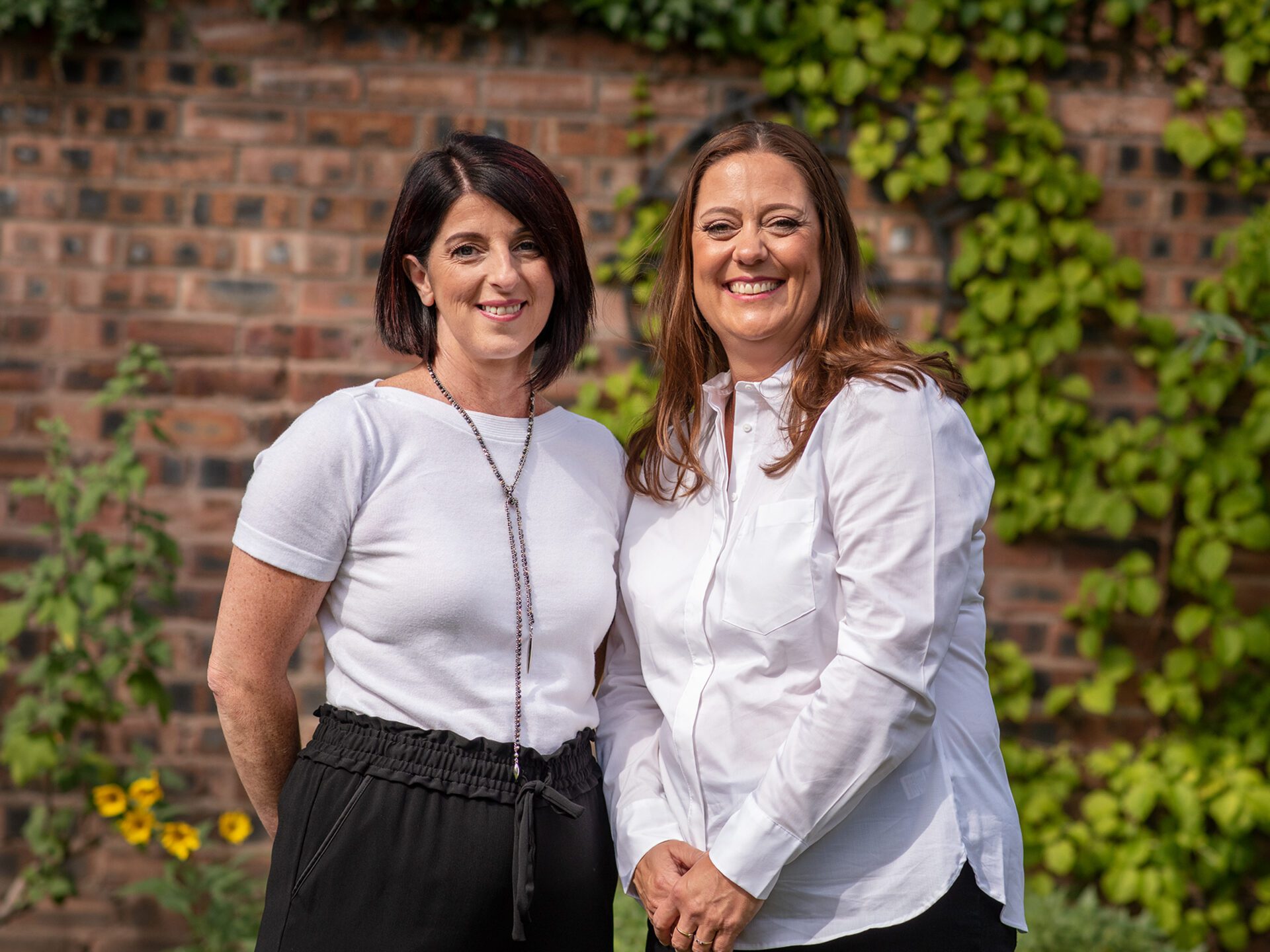
Lesley Spellman, left, and Ingrid Jansen - The Declutter Hub
What is your clutter personality: Are you a happy heaper?
Ingrid Jansen and Lesley Spellman are the UK’s leading authority on decluttering and organising your home as The Declutter Hub , which boasts a top one percent podcast. They’re also the authors behind the bestselling Bloomsbury book Reset Your Home, Unpack Your Emotions And Your Clutter, Step By Step.
If you have a home that runs like clockwork, your cleaning schedule is non-negotiable and your laundry is up to date every weekend, it can be hard to understand how other people in your life, whether that be within your close network or a colleague at work can operate effectively in what seems to be a constant state of messiness and chaos.
And all that clutter – why can’t they just get rid of it?
How the four clutter personalities work and traits
You see, in life, there are people at one side of the spectrum who pride themselves on having a clutter-free home, people at the opposite end of the spectrum who pride themselves on not bowing down to societal norms of what tidy looks like and then, there are an abundance of people in the middle who feel overwhelmed, overrun and overwrought by the state of their home and the amount of things they have amassed.
Clutter is all born out of an emotional response – we feel guilty because of the money we spent on an item.
We feel worried that we will let go of something we will later need.
We hold onto things because we feel we need to honour someone’s memory.
We buy things because we are bored or fed up, or as a treat to ourselves.
We keep things because we vow we are going to start using them one day. The list is endless.
And these emotions take hold of us. In order to make a controlled rational decision about something that in our heart of hearts we know we don’t need, we need to understand ourselves and our emotions first and then try and break down these barriers that hold us back and keep us stuck.
Then, and only then, can we start to successfully make headway with our belongings and make the changes we so want and deserve in our lives.
Whilst we are strong believers in drawing a line in the sand and moving forwards rather than constantly evaluating the baggage of the past, it’s important to spend at least a short amount of time understanding what your core clutter personality traits are so you can be ready for them when they rear their head.
The Kind Keeper
A sentimental soul with a love of socialising, the kind keeper loves to buy new things and also hold onto the old to remind them of happy times.
They may have lived a period of their life when they had very little and consequently embrace the feeling of having more.
Sentimentality is a constant barrier and they get lost in the moment when decluttering with trips down memory lane.
The desire to declutter and organise their home may stem from an upcoming transition in their life.
When they start to work through their things, they may feel pressure from loved ones to let go of things they are not ready to and that causes conflict and anxiety.
The Warm Weeper
A warm weeper is likely to have undergone loss, pain and possibly trauma in their lives.
The stuff they have chosen to keep has offered them respite from the complications of relationships or the overwhelming sense of melancholy they feel.
Because other people care about the struggles that have been through they may have reached out to help but that help has caused more harm than good as it came at the wrong time or with the wrong motive.
The warm weeper is likely to feel judged by those around them and is keen to declutter in their own way and in their own time and not be influenced by those around them.
The Harassed Housekeeper
Let’s just say there are a lot of harassed housekeepers around.
People who are constantly trying to keep all the plates spinning with an overwhelming fear of them coming crashing down.
Their home and the clutter in it may not be of their own making.
They feel like they are the only person who is attempting to keep on top of things but the odds are always stacked against them.
They may struggle to work through chores at home because they have simply never been taught.
But equally, they may know exactly what to do and how to do it but just simply never seem to find the time.

The Nostalgic Knee-deeper
The nostalgic knee-deeper may be knee deep in clutter either literally or metaphorically but the one thing that is certain is that they feel judged, embarrassed and overwhelmed.
The increase in clutter may have been sudden or may have been a lifelong problem but the nostalgic knee deeper is likely to feel defined by their clutter and disillusioned.
Their journey towards a life with less is no less possible than any other of the personalities we’ve mentioned.
The Happy Heaper
One of the most prevalent clutter personality types is the happy heaper.
Could you be a happy heaper?
The happy heaper is often a deep, sometimes chaotic and possibly neurodivergent thinker.
They are likely to have a busy life with multiple people, projects and priorities to think about.
Because of the busy nature of their life, their home often falls down on the list of priorities.
Whilst other people might think their home is chaotic, they have a sense of knowing where something might be found and it’s often in heaps of things dotted around the home.
What are the signs you might be a ‘happy heaper’?
Those heaps are something you continually wants to tackle but you’re easily distracted and are definitely drawn to shiny object syndrome.
It doesn’t take much to distract you from the task in hand if something more exciting rears its head.
- Your heaps are often there as visual reminders. You feel that if you put something away, you will probably forget all about it so you leave stuff out. That pile of things to take to the dry cleaners, those bills that need to be paid, those magazine clippings you want to read etc.
- You may suffer from all-or-nothing thinking. Instead of focusing on smaller, more achievable projects you go all in, bite off more than you can chew, try and do a whole garage in one day, get overwhelmed and give up.
- Perfectionism often stops you in your tracks too as you don’t embark on doing something unless the conditions are perfect.
When clutter takes hold of us, it can be difficult to find the strength to make a change.
Delving into your innermost feelings and emotions is confronting and takes time to manage thoroughly and successfully.
You can be forgiven for thinking that you are the only one who has a clutter problem.
But be comforted in the knowledge that there are other people around who have felt the exact same struggles as you that have come out the other side. And you can do it too.
Our advice? Decluttering is all about emotions first, stuff second.

Once you have come to terms with why you are holding onto certain items in your home, parting with them becomes so much easier.
Don’t let the baggage of the past drag you down.
Reset your home thought by thought, room by room and day by day.
And always keep firmly front of mind, less stuff equals more space.
More space equals more calm. And more calm means a happier you. You’ve got this!
Ingrid’s tip for a clutter free home
Build up your decluttering muscle
Start with easier, less emotional rooms in your home, like the kitchen, bathroom or linen cupboard.
You will still find items that are tricky to let go, but normally these rooms are more straightforward to do, since the items have fewer emotions attached to them.
Once your decluttering muscle has started to flex you can move onto more tricky categories like books, paperwork and sentimental items.
Lesley’s words to declutter by
What’s more important – the space or the stuff?




